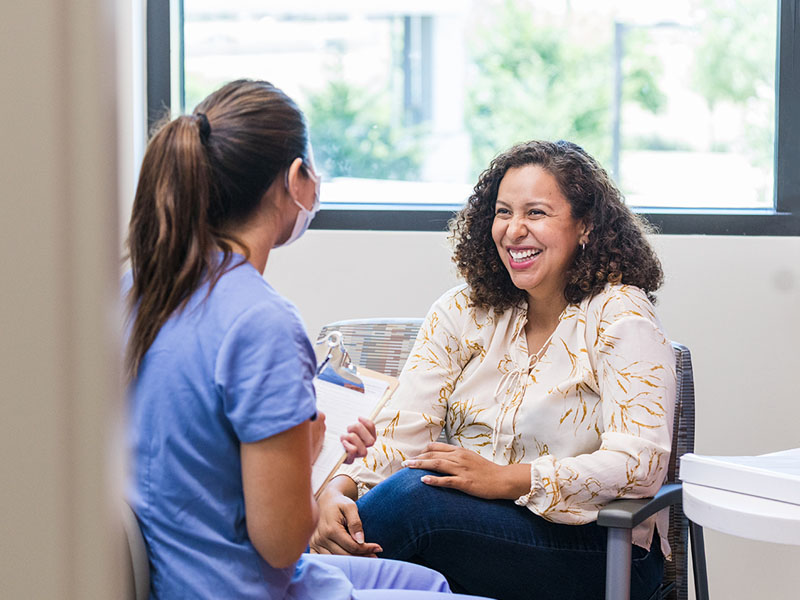More Topics
◀ Home
Breast cancer screening: When to start and what to know
New screening guidelines from the United States Preventive Services Task Force (USPSTF) recommend that women start screening for breast cancer starting at age 40 and every other year after that. USPSTF’s previous recommendation was for women to start screening at age 50.
 New scientific proof shows that breast cancer rates are growing about 2% per year. The task force believes that this advice will prevent one more breast cancer death for every 1,000 women, or 20% more lives saved.
New scientific proof shows that breast cancer rates are growing about 2% per year. The task force believes that this advice will prevent one more breast cancer death for every 1,000 women, or 20% more lives saved.
How likely is breast cancer?
According to the National Cancer Institute, women have a 1-in-8 (12%) chance on average of getting breast cancer over their lifetime. However, some women have a higher or lower chance of breast cancer based on certain risk factors, including family history and lifestyle.
These facts increase the chance of breast cancer:
- Starting a period before age 12
- Starting menopause after age 55
- Exposure to the drug diethylstilbestrol (DES), a synthetic form of estrogen
- Dense breasts, which contain more connective tissue
- Taking contraceptives by mouth
- Drinking alcohol
- Being overweight or not physically active
While some risk factors, like age or a family history of breast cancer, cannot be changed, the Centers for Disease Control and Prevention (CDC) says being physically active and drinking less alcohol can help you lower your risk.
When should women be screened for breast cancer?
USPSTF’s new recommendations state that women should start getting screened for breast cancer at age 40. But for women with a greater risk of breast cancer, their doctor may recommend screening for breast cancer at an earlier age. The USPSTF says that all women need to have a talk with their doctor by age 25 about their risk of breast cancer.
Here are a few things that may increase your risk of breast cancer:
Personal or family history of breast cancer
If you have had breast cancer, or your mother, father, sister or child has had breast or ovarian cancer, you are two to three times more likely to get it. If you had breast cancer in one breast, you are more likely to get cancer in the other breast, too.
Past abnormal biopsy
Getting benign, or non-cancerous, breast tumors make it more likely that you’ll also have malignant, or cancerous, tumors later on. Experts are still trying to understand the reason this happens, but they do know that the two events are linked.
Exposure to chest radiation at a young age
Even though you may have had chest X-rays for a health reason, repeated chest X-rays can raise your chances for breast cancer. Health problems like tuberculosis (TB), scoliosis, lymphoma or childhood cancer are treated with radiation, and breast cancer can happen because of the cure.
Genetic marker for breast cancer
BRCA1 and BRCA2 are the “breast cancer genes”. The CDC says you have an 80% chance of getting breast cancer if you have one of these genes. Gather your family history of breast and ovarian cancer first and talk to your doctor about getting genetic testing to find out if you have one of these genes.
Book a mammogram in your area
No matter where you live in Idaho, you can find quality care. For more information about breast cancer screenings and where you can find a screening location in Idaho, visit our breast cancer resource page. You can also check with your local health district for more information on screening locations in your area.
Posted: October 5, 2022
